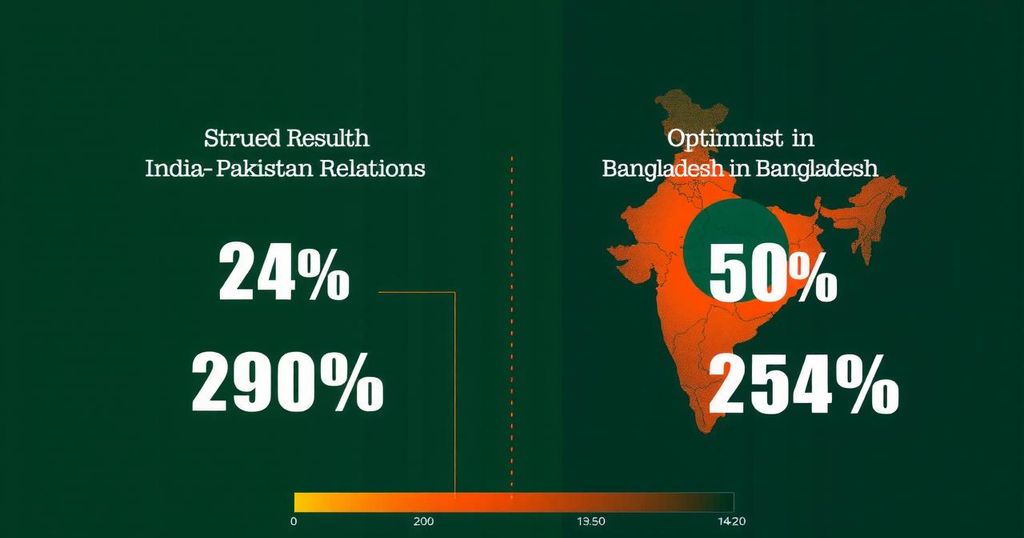Survey Delves into India-Pakistan Relations: Pessimism Takes Precedence as Bangladeshis Remain Optimistic
A recent survey conducted by the Centre for Policy Research (CPR) in collaboration with C Voter reveals that a significant majority of the populations in India and Pakistan do not anticipate improvement in relations between the two nations over the next decade. More than 60% of Indian respondents and over half of Pakistani participants expressed the belief that amicable ties are unattainable during this period. This survey, which aimed to gauge the sentiments of citizens in India, Pakistan, and Bangladesh on various political, economic, and foreign policy issues, highlights a stark shift in public perception following a decline in bilateral discussions since 2016, with the survey drawing responses from approximately 100,000 individuals, of whom 12,000 completed the survey.
In comparison to previous surveys conducted in 2011 and 2013, which reflected greater hope for potential reconciliation—specifically, a poll titled “Aman ki Asha,” indicating that two-thirds of participants from both nations believed that peace was achievable within their lifetimes—the current findings depict a more pessimistic outlook.
According to the report entitled “South Asia in a Changing World: What Citizens in India, Pakistan, and Bangladesh think 75 years post-Partition,” released in Delhi, the survey revealed a complex relationship with the historical context of the Partition. Rahul Verma, a co-author of the report, remarked that South Asians exhibit a mix of nostalgia regarding the Partition while simultaneously acknowledging the improbability of benefiting from friendly relations between India and Pakistan.
The results indicated that 48% of Indian respondents favored a reversal of Partition conditions, in contrast to only 31% of Pakistanis and 32% of Bangladeshis. Additionally, the survey uncovered that 62% of Indians and 52% of Pakistanis considered it unlikely that their nations would develop friendly ties in the foreseeable future. Interestingly, sentiments in Bangladesh appeared more optimistic, with 45% of respondents believing in the likelihood of improved India-Pakistan relations.
During a public event, Indian External Affairs Minister S. Jaishankar commented on the grim prospect of dialogue with Pakistan, stating, “I think the era of uninterrupted dialogue with Pakistan is over. Actions have consequences.” His remarks coincide with the survey results, suggesting that the current climate does not favor reconciliation.
The survey further explored perceptions of global influence in the region, finding that Indians predominantly viewed their country as the most influential force in South Asia, whereas Pakistanis and Bangladeshis attributed this role to China. Notably, a general apprehension regarding Chinese interference surfaced, with over two-thirds of both Pakistani and Bangladeshi respondents indicating high concern, while fewer than half of Indians expressed similar sentiments. Furthermore, trust levels in global powers reveal that both Indians and Pakistanis favored Russia over the United States, while Bangladeshis exhibited equal trust in both the U.S. and China.
In conclusion, while the CPR-C Voter survey surfaced critical insights into the sentiments of South Asians regarding national and international dynamics, it also highlighted a general desire among the populace for strong leadership and technocratic governance. Despite current socio-economic challenges, many respondents remained optimistic about the future development of their respective countries, albeit with a significant recognition of ongoing issues related to corruption and poverty, particularly in India and Pakistan. This nuanced understanding of public opinion underscores the complexities inherent in South Asia’s socio-political landscape, suggesting a need for continued dialogue and regional cooperation to address the prevailing challenges.








Post Comment